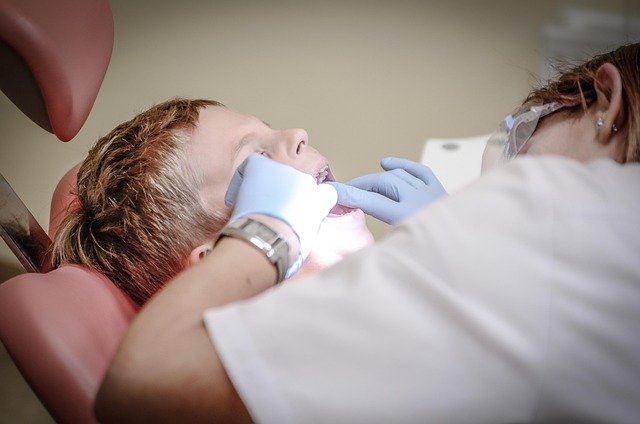Autism Clinical Trials: Options for Families Seeking Treatment
Autism clinical trials represent an evolving area of medical research that offers families access to innovative treatment approaches while contributing to scientific understanding. These studies explore various interventions, from behavioral therapies to pharmacological treatments, designed to address core symptoms and associated challenges. For families navigating autism spectrum disorder, understanding clinical trial opportunities can open doors to specialized care and potentially beneficial interventions that may not yet be widely available.

Families affected by autism spectrum disorder often seek comprehensive treatment approaches that address individual needs and developmental goals. Clinical trials provide structured research environments where new interventions are tested for safety and effectiveness. These studies range from behavioral intervention programs to medication trials and neuroscience-based therapies. Participation in clinical research can offer families access to cutting-edge treatments while contributing valuable data to advance autism science.
What Are Autism Clinical Trials?
Autism clinical trials are carefully designed research studies that evaluate new treatments, therapies, or interventions for individuals on the autism spectrum. These trials follow strict protocols established by institutional review boards and regulatory agencies to ensure participant safety. Researchers may investigate behavioral interventions, communication strategies, sensory integration therapies, or pharmaceutical treatments targeting specific symptoms such as repetitive behaviors, social communication difficulties, or co-occurring conditions like anxiety or attention challenges.
Clinical trials typically progress through multiple phases. Early-phase studies assess safety and dosing in small groups, while later-phase trials evaluate effectiveness in larger populations. Some trials compare new interventions against standard treatments or placebo controls. Participants receive thorough medical monitoring, and families often gain access to specialists and resources not readily available through conventional healthcare channels. All trials require informed consent, ensuring families understand potential risks and benefits before enrolling.
How Autism Clinical Trial Participation Works
The process of joining an autism clinical trial begins with identifying appropriate studies through registries, healthcare providers, or research institutions. Families typically undergo a screening process to determine eligibility based on age, diagnosis criteria, symptom profiles, and medical history. Researchers provide detailed information about study requirements, including visit schedules, assessments, and any interventions involved.
Once enrolled, participants follow a structured protocol that may include baseline evaluations, regular check-ins, and outcome measurements. Depending on the trial design, children or adults with autism might receive behavioral therapy sessions, take investigational medications, or participate in skill-building programs. Researchers collect data through observations, standardized assessments, parent questionnaires, and sometimes biological samples. Most trials provide compensation for time and travel, and some cover treatment costs that would otherwise require out-of-pocket payment.
Families maintain the right to withdraw from studies at any time without penalty. Ethical guidelines require researchers to prioritize participant welfare and maintain confidentiality. Communication between research teams and families remains ongoing throughout the trial period, with regular updates about progress and any emerging findings.
Current Autism Treatment Research Programs
Research institutions across the United States are actively conducting autism clinical trials exploring diverse treatment modalities. Studies currently underway investigate social skills training programs, parent-mediated interventions, technology-assisted therapies, and medications targeting specific neurological pathways. Some trials focus on early intervention strategies for toddlers, while others examine support systems for adolescents and adults transitioning to independence.
Recent research directions include studies on oxytocin administration, cannabidiol for behavioral symptoms, and virtual reality-based social skills training. Behavioral trials often test variations of applied behavior analysis, pivotal response treatment, or naturalistic developmental behavioral interventions. Neuroscience-focused studies may use brain imaging to understand treatment mechanisms or evaluate neurofeedback approaches.
Families interested in participating can search databases maintained by the National Institutes of Health or contact university-affiliated autism research centers. Many academic medical centers have dedicated autism research programs that maintain registries of interested families. Eligibility requirements vary widely depending on study objectives, but opportunities exist for individuals across age ranges and symptom severities.
Benefits and Considerations for Families
Participating in autism clinical trials offers several potential advantages. Families gain access to specialized evaluations and interventions that might otherwise be unavailable or cost-prohibitive. Research teams often include multidisciplinary experts who provide comprehensive assessments and individualized attention. Some families appreciate contributing to scientific progress that may benefit future generations.
However, participation also requires careful consideration. Time commitments can be substantial, with frequent visits and assessments potentially disrupting routines. Not all participants receive active treatment, as some trials include control groups or placebo conditions. Experimental interventions carry unknown risks, though safety monitoring aims to minimize potential harm. Families should discuss participation thoroughly with healthcare providers and ensure they understand study protocols before committing.
Finding Reliable Clinical Trial Information
Reputable sources for autism clinical trial information include ClinicalTrials.gov, a comprehensive database maintained by the National Library of Medicine. Academic institutions with autism research programs often list available studies on their websites. Professional organizations such as the Autism Science Foundation and the Simons Foundation Autism Research Initiative provide resources about ongoing research.
Families should verify that trials are conducted by accredited institutions with proper ethical oversight. Legitimate studies never charge participation fees and always provide detailed informed consent documents. Speaking with healthcare providers, connecting with autism advocacy organizations, and joining family support networks can help identify trustworthy opportunities. Research coordinators should be accessible to answer questions and address concerns throughout the decision-making process.
Supporting Your Family Through Research Participation
Successful clinical trial participation often depends on preparation and ongoing support. Families benefit from maintaining open communication with research teams, asking questions about procedures, and expressing concerns promptly. Keeping detailed records of observations and experiences can help researchers gather accurate data while allowing families to track their child’s progress.
Balancing research commitments with daily routines requires planning. Some families find it helpful to schedule trial visits during less disruptive times or coordinate with schools and therapists. Connecting with other participating families through support groups can provide emotional support and practical advice. Recognizing that participation contributes to broader scientific understanding can help families feel purposeful even when immediate benefits are uncertain.
This article is for informational purposes only and should not be considered medical advice. Please consult a qualified healthcare professional for personalized guidance and treatment.




